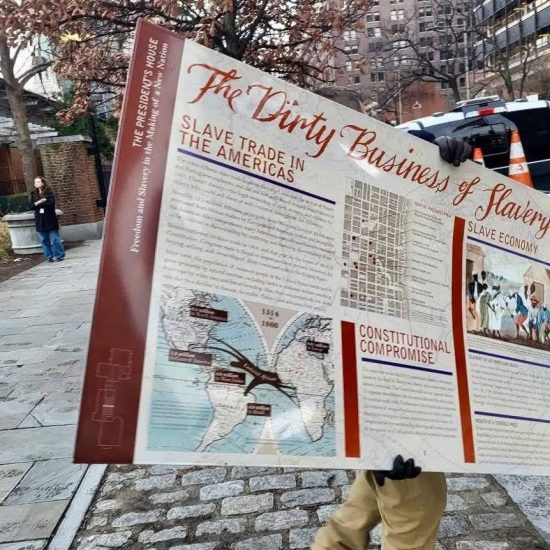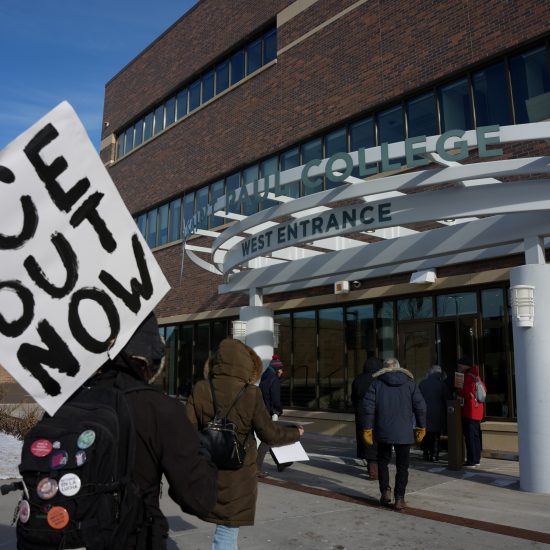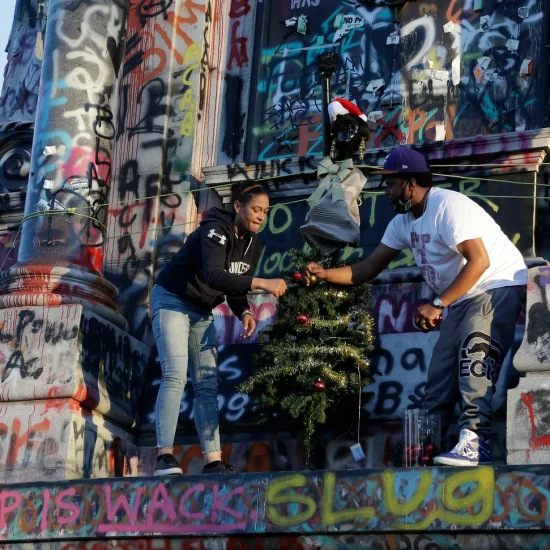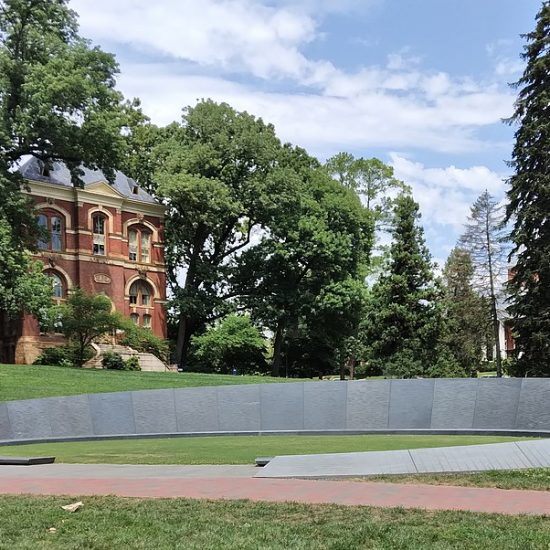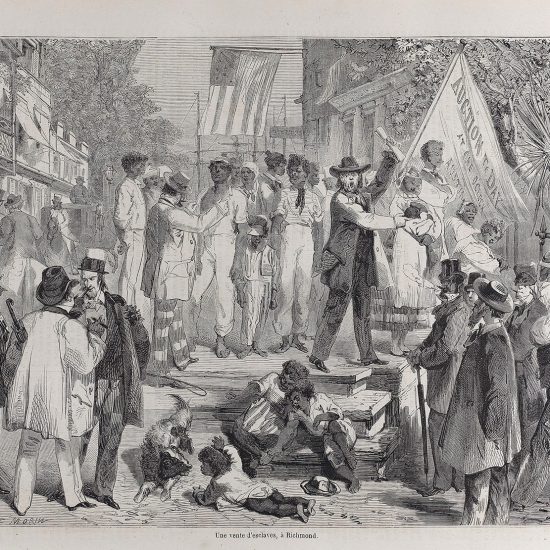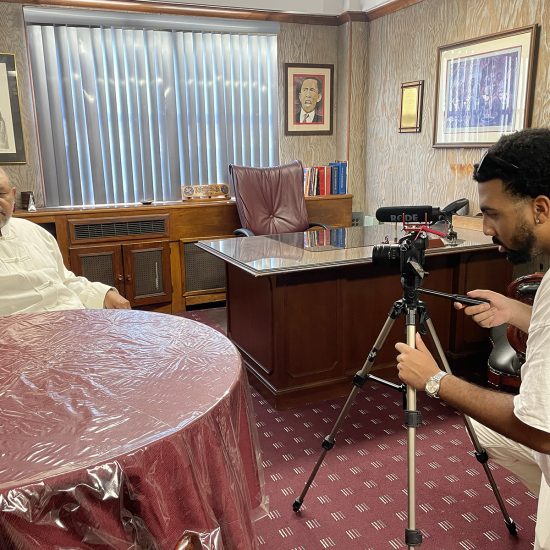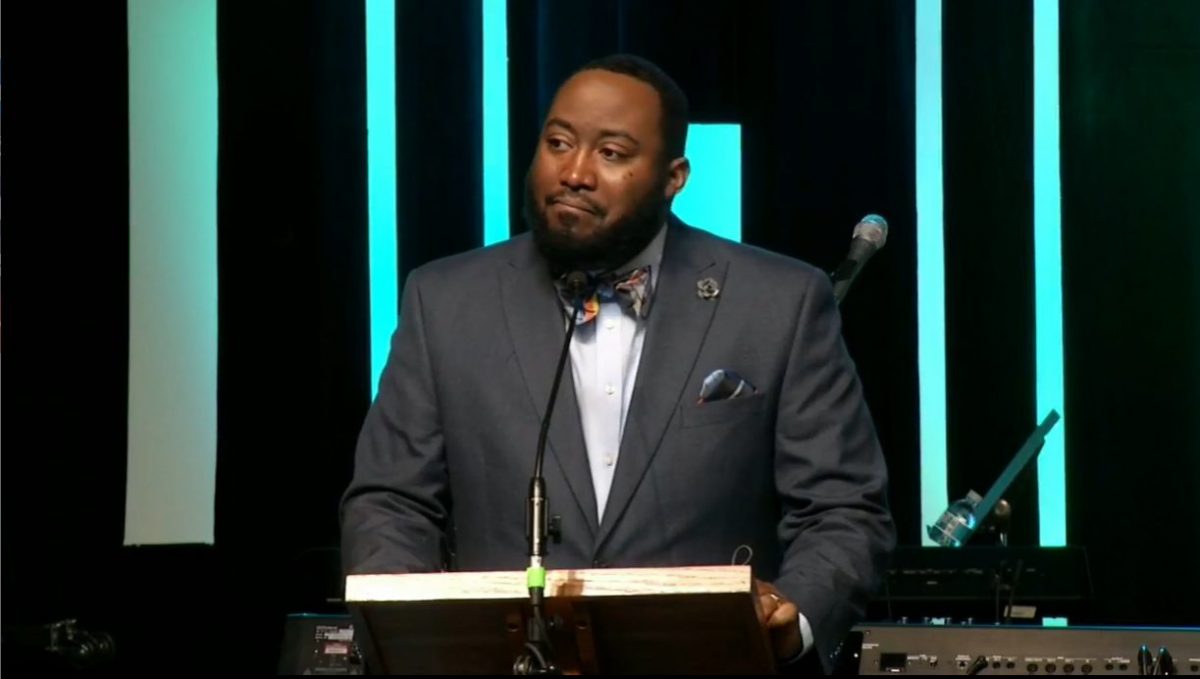
The Missouri Baptist Convention on Tuesday (Oct. 27) elected its first Black president — 186 years after the first man to hold that position did so while he enslaved more than a dozen Black people. This week’s election of Jon Nelson, pastor of SOMA Community Church in Jefferson City, symbolized a significant change since Jeremiah Vardeman’s election as moderator in 1834 and 1835.
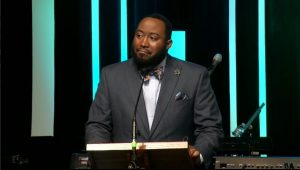
Screengrab as Jon Nelson speaks right after his election as the first Black president of the Missouri Baptist Convention on Oct. 27, 2020.
Nelson, who ran unopposed for the position, served as MBC first vice president the last two years. Immediately after his election at the annual meeting in St. Charles, he held back tears as he offered a few remarks.
“I stand before you as a humbled man,” he said. “It has been an honor to serve you and to continue to serve you as your president.”
Nelson also talked about the efforts of the MBC’s new taskforce created to work “toward racial reconciliation and greater diversity in leadership by examining the MBC’s history as it relates to racial issues, creating avenues for education and greater understanding of this issue for churches, and developing a plan for greater inclusion and diversity in the leadership of the Convention.”
Vardeman & Enslaved Persons
A well-known preacher by the time Baptists in Missouri decided to form a state body, Vardeman was a natural choice to lead the fledging group. First elected on Aug. 28, 1834 at the organizational meeting at Providence Baptist Church in New Bloomfield, he was reelected on June 5, 1835 at the meeting at Little Bonne Femme Baptist Church in Columbia.
At the time, he lived in Ralls County in the northeast part of the state near Hannibal. He moved to the state in late 1830 after decades of ministry in Kentucky. He presumably brought many enslaved persons with him as he moved from one slave state to another.
According to a Word&Way analysis of the census data, the count on either side of his tenure leading Missouri Baptists shows Vardeman enslaved several Blacks. In 1830 while still in Kentucky near Lexington, he is listed as enslaving 18 people. Ten years later in Missouri, the census shows him enslaving 17 people.
Only sex and broad age ranges are given for the enslaved in those censuses, but matching the ages of the enslaved in the two censuses and assuming those are the same people (though they may not be) means he enslaved at least 24 different people during that time.
Additionally, he enslaved six people in 1810. He doesn’t seem to appear in the 1820 census, perhaps because he spent several weeks that year in Nashville helping start the First Baptist Church there and he was widowed at the time and so it might be that no one in his household got counted.
Vardeman died in 1842 at the age of 67. The first Baptist school in Missouri, William Jewell College in Liberty, started several years later and named its theology school after him. And Vardeman had previously helped start Georgetown College, a Baptist school in Kentucky.
In his will, he named several of his enslaved persons as he gave them to his sons. To his son Jeremiah, he gave Henry and Jack. To his son William, he gave Anthony, Queen, and Ned. Any other enslaved persons are left unnamed and given to his wife.
Trend Following Other Conventions
Nelson’s election to lead the MBC follows several other state conventions affiliated with the Southern Baptist Convention to elect a Black president. The SBC, which was founded to support slavery, elected its first Black president, Fred Luter, in 2012.
The Cooperative Baptist Fellowship elected its first Black moderator, Emmanuel McCall, in 2006, and the American Baptist Churches USA elected its first Black president, Thomas Kilgore Jr., in 1969.
The D.C. Baptist Convention elected a Black president in 1994. At the time, the convention was dually-aligned with the SBC and ABCUSA. The first SBC-only state convention to elect a Black president was the Florida Baptist Convention in 1999.
Other state conventions elected Black presidents since then. And last year, three Southern Baptist state conventions elected their first Black president: the Colorado Baptist General Convention, the SBC of Virginia, and the South Carolina Baptist Convention.

